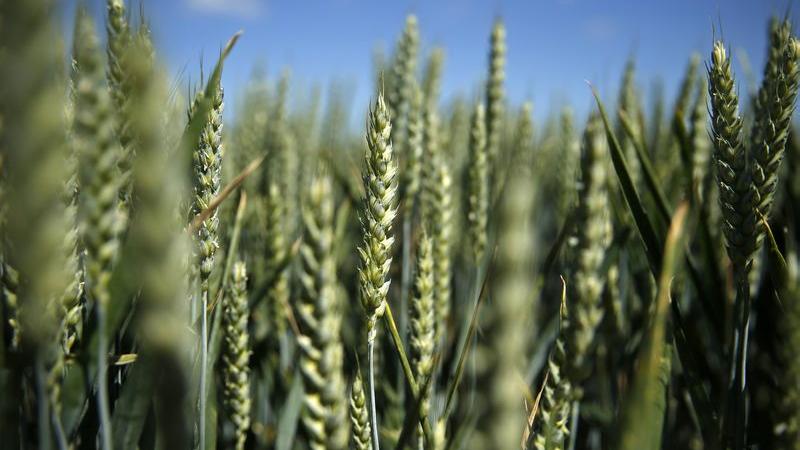Chinese, British scientists retrieve lost wheat genetic diversity, empowering modern breeding

“A collaborative study by Chinese and British scientists reveals that 60% of genetic diversity in historic wheat collections remains untapped. Published in Nature, the study highlights lost diversity in modern wheat due to artificial selection. Researchers aim to reintroduce beneficial genes for higher yield, quality, and stress resistance. The findings offer groundbreaking potential for global wheat breeding efforts, emphasizing sustainable food security amidst climate challenges.”
BEIJING, June 18 (Xinhua) — A collaborative study led by scientists from China and Britain revealed that at least 60 percent of the genetic diversity found in a historic collection of wheat is unused, providing an unprecedented opportunity to improve modern wheat and achieve food security.
The study, jointly conducted by a research team from the Agricultural Genomics Institute in Shenzhen under the Chinese Academy of Agricultural Sciences and the John Innes Centre in Britain, as well as other research organizations, was published in the latest issue of the academic journal Nature.
Wheat is one of the most important global food crops for humans. Faced with a series of challenges such as the continuous growth of global population, complex climate change and the gradual slowing down of the cultivation of new wheat varieties, scientists urgently need to find efficient and precise methods for wheat breeding to cultivate high-yield and high-quality new varieties, said Cheng Shifeng, the Chinese leading scientist in the study.
Cheng’s team introduced from Britain a historic collection of wheat gathered in the 1920s and 1930s from 32 countries, which are no longer grown anywhere in the world. Experiments have been carried out across China, along with a comparative analysis of the nearly century-old wheat with modern wheat varieties.
By using cutting-edge technologies such as genomics, genetics, bio-informatics and molecular biology, scientists built a wheat genomic variation map, and revealed that modern wheat varieties have lost over 60 percent of their genetic diversity through long-term artificial selection.
“This missing 60 percent discovered in this study is full of beneficial genes that we need to feed people sustainably,” said Simon Griffiths, group leader at the John Innes Centre.
“We can retrace a huge set of novel, functional and beneficial diversity that were lost in modern wheat varieties, and now have the opportunity to add them back into elites in the breeding programs,” said Cheng.
In addition, the research team has discovered new genes and thousands of genetic variation sites in wheat for high yield, high calcium content, lodging resistance, efficient nitrogen use, resistance to blast and leaf spot diseases. They have developed genomics and genetics resources and new tools useful for wheat research and breeding.
“This study has huge potential for future genetic improvement of wheat, and can be used to cultivate new wheat varieties with high yield and quality, stress resistance and adaptability to climate change,” said Li Jiayang, an academician of the Chinese Academy of Sciences (CAS).
Qian Qian, another CAS academician, commented that the astounding discovery offers significant inspiration and guidance for wheat breeding, and providing valuable genetic information for the innovative use of germplasm resources.
“This study has opened up endless possibilities for utilizing ancient germplasm resources to improve modern wheat breeding. It has epoch-making significance for wheat breeding in China and even the world,” said Chu Chengcai, a professor with the South China Agricultural University.
Source Link: https://english.news.cn/20240618/2ae83bbf71724bae823dc30c9ecf14e3/c.html
















